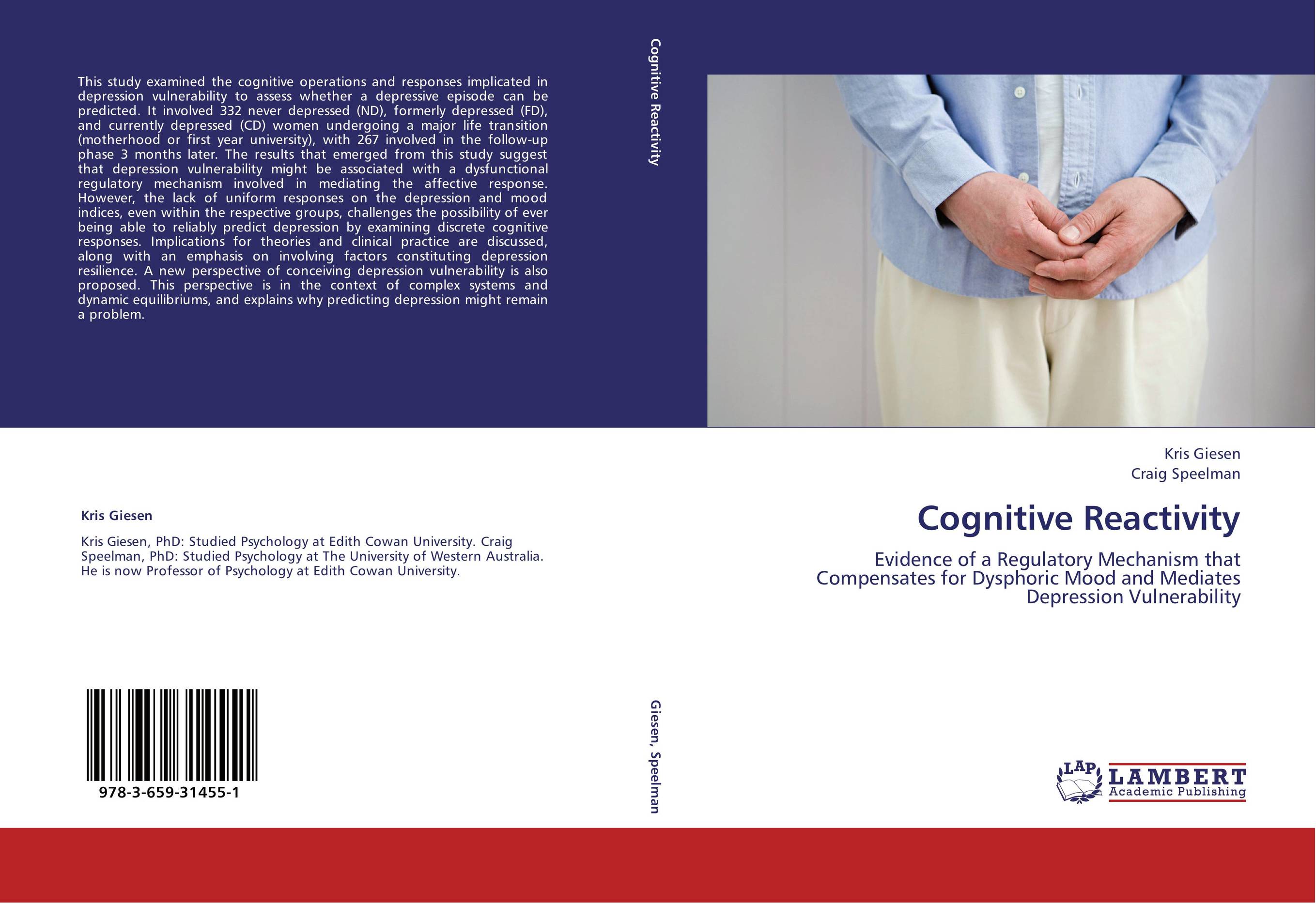| Поиск по каталогу |
|
(строгое соответствие)
|
- Профессиональная
- Научно-популярная
- Художественная
- Публицистика
- Детская
- Искусство
- Хобби, семья, дом
- Спорт
- Путеводители
- Блокноты, тетради, открытки
Cognitive Reactivity. Evidence of a Regulatory Mechanism that Compensates for Dysphoric Mood and Mediates Depression Vulnerability

В наличии
| Местонахождение: Алматы | Состояние экземпляра: новый |

Бумажная
версия
версия
Автор: Kris Giesen and Craig Speelman
ISBN: 9783659314551
Год издания: 2013
Формат книги: 60×90/16 (145×215 мм)
Количество страниц: 416
Издательство: LAP LAMBERT Academic Publishing
Цена: 54778 тг
Положить в корзину
| Способы доставки в город Алматы * комплектация (срок до отгрузки) не более 2 рабочих дней |
| Самовывоз из города Алматы (пункты самовывоза партнёра CDEK) |
| Курьерская доставка CDEK из города Москва |
| Доставка Почтой России из города Москва |
Аннотация: This study examined the cognitive operations and responses implicated in depression vulnerability to assess whether a depressive episode can be predicted. It involved 332 never depressed (ND), formerly depressed (FD), and currently depressed (CD) women undergoing a major life transition (motherhood or first year university), with 267 involved in the follow-up phase 3 months later. The results that emerged from this study suggest that depression vulnerability might be associated with a dysfunctional regulatory mechanism involved in mediating the affective response. However, the lack of uniform responses on the depression and mood indices, even within the respective groups, challenges the possibility of ever being able to reliably predict depression by examining discrete cognitive responses. Implications for theories and clinical practice are discussed, along with an emphasis on involving factors constituting depression resilience. A new perspective of conceiving depression vulnerability is also proposed. This perspective is in the context of complex systems and dynamic equilibriums, and explains why predicting depression might remain a problem.
Ключевые слова: Depression, Mood, Resilience, Memory, Complex systems



